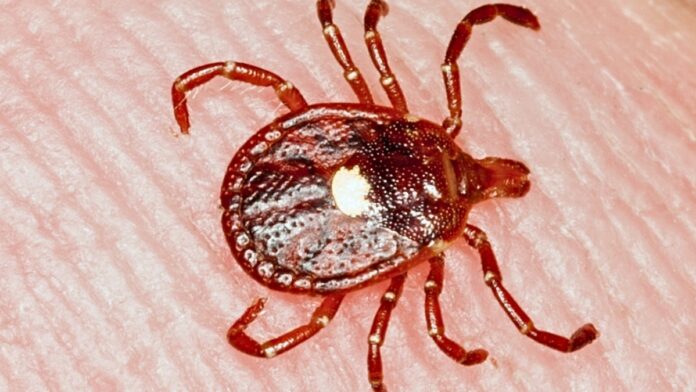A 47-year-old New Jersey man has died from anaphylaxis triggered by a newly acquired red meat allergy, marking the first confirmed fatality linked to alpha-gal syndrome contracted from a lone star tick bite. The case underscores a growing, yet often overlooked, public health threat as tick populations expand and awareness of this unusual allergy remains low.
The Rising Threat of Alpha-Gal Syndrome
Alpha-gal syndrome, or mammalian meat allergy, develops when a tick bite introduces alpha-gal, a sugar molecule found in most mammals but not in humans, into the bloodstream. The body then mounts an immune response, creating antibodies that attack alpha-gal upon subsequent exposure—typically through eating red meat, pork, or even dairy.
Symptoms range from mild hives and digestive distress to severe anaphylaxis, a potentially fatal allergic reaction. While many cases are mild, this recent death confirms the risk of severe outcomes.
How the Allergy Develops
The lone star tick ( Amblyomma americanum ) is the primary vector for alpha-gal transmission in the United States. Unlike typical allergy triggers like peanuts or shellfish, this allergy is acquired after the tick bite. The delay between exposure and symptom onset—often hours after consuming meat—makes diagnosis challenging.
Many people misidentify tick bites as chigger bites, especially in areas where the lone star tick is prevalent. The juvenile stage of the tick is also capable of transmitting the allergy.
Expanding Geographic Range
Experts warn that the geographic range of the lone star tick is expanding northward due to a dramatic increase in deer populations and climate change. Warmer temperatures allow ticks to thrive in regions previously too cold for their survival. Similar tick-borne red meat allergies have been reported in Australia, parts of Europe, and Asia.
What to Watch For
Delayed reactions are a key indicator. If you experience severe abdominal pain, hives, or other allergic symptoms 3 to 5 hours after eating beef, pork, or lamb, seek medical evaluation for possible alpha-gal sensitization. Mild cases can often be managed with dietary adjustments, but severe reactions require immediate treatment.
Expert Warning
“The important information for the public is: First, that severe abdominal pain occurring 3 to 5 hours after eating beef, pork, or lamb should be investigated as a possible episode of anaphylaxis; and, second, that tick bites that itch for more than a week or larvae of ticks often called ‘chiggers’ can induce or increase sensitization to mammalian-derived meat,” warns University of Virginia allergist Thomas Platts-Mills.
This case serves as a stark reminder that tick-borne illnesses extend beyond Lyme disease and Rocky Mountain spotted fever. Awareness and vigilance are crucial as this unusual allergy continues to emerge as a growing public health concern
